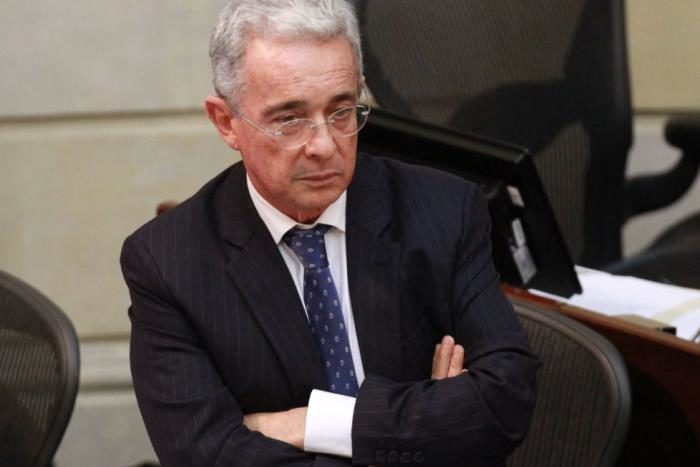
Aug 19, 2020 | Artículos, Noticias
Hoy la CIJ llamó a las autoridades públicas a abstenerse de realizar comentarios o acciones que puedan socavar la integridad del proceso judicial y la independencia de la Rama Judicial.
El 4 de agosto la Sala Especial de Instrucción de la Sala Penal de la Corte Suprema de Justicia resolvió la situación jurídica del expresidente Álvaro Uribe Vélez, y ordenó su detención preventiva, sustituyéndola por detención domiciliaria, en relación con el caso que se sigue en su contra por los presuntos delitos de soborno a testigo y fraude procesal.
Desde hace días, varios políticos han hecho declaraciones inapropiadas e incendiarias respecto de la justicia, incluidas algunas que sugieren que los jueces toman sus decisiones basándose en prejuicios ideológicos o políticos en lugar de basarse en la Constitución y la ley.
El presidente de Colombia, Iván Duque, expresó en una declaración trasmitida por televisión que le “duele como colombiano que muchos de los que han lacerado al país con barbarie se defiendan en libertad o inclusive tengan garantizado jamás ir a prisión, y que a un servidor público ejemplar que ha ocupado la más alta dignidad del Estado no se le permita defenderse en libertad con la presunción de inocencia. Soy y seré siempre un creyente en la inocencia y en la honorabilidad de quien con su ejemplo se ha ganado un lugar en la historia de Colombia”.
La CIJ enfatiza que es inapropiado que un jefe de Estado u otro funcionario del poder ejecutivo intervenga de esta manera en un caso que está siendo objeto de estudio en la Rama Judicial. Los Principios Básicos relativos a la independencia de la judicatura de las Naciones Unidas dejan claro que “[t]odas las instituciones gubernamentales y de otra índole respetarán y acatarán la independencia de la judicatura”, y esto implica que deben abstenerse de “influencias, alicientes, presiones, amenazas o intromisiones indebidas, sean directas o indirectas”.
Adicionalmente, y como reacción a la detención del expresidente Uribe, el partido político “Centro Democrático” del cual son miembros el presidente Duque y el expresidente Uribe, emitió un comunicado de prensa en el que dijo que planeaban proponer una Asamblea Nacional Constituyente “con el propósito de despolitizar la justicia”. Y el expresidente Uribe mencionó el 16 de agosto que esperaba que su partido político iniciara una reforma judicial a través de referendo para acabar con la “politización” de la Corte.
La CIJ considera que las acciones de reforma a la justicia no deben basarse en reacciones políticas a un caso o una decisión judicial determinada. Las reformas al sector justicia deben basarse en las buenas prácticas y en los estándares que permitan reforzar la independencia judicial y contar con una pronta, oportuna y justa administración de justicia.
Por último, el vicepresidente de Estados Unidos, Mike Pence, también hizo comentarios inapropiados frente a la justicia colombiana, al tuitear el 14 de agosto que se unía a las voces que pedían a las autoridades colombianas que permitieran que Álvaro Uribe “se defendiera como un hombre libre”.
Contacto: Carolina Villadiego Burbano, Asesora Legal para América Latina de la CIJ, e: carolina.villadiego(a)icj.org
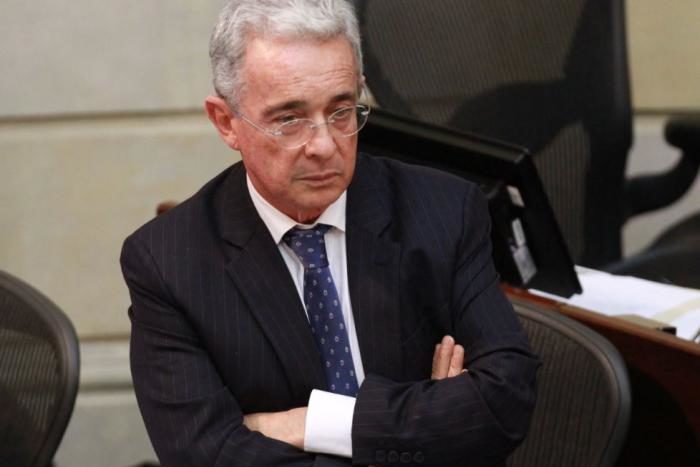
Aug 19, 2020 | News
Today the ICJ called on the public authorities to refrain from comments or actions that could undermine the integrity of the judicial process and the independence of the judiciary.
On August 4, the Instruction Special Chamber of the Criminal Chamber of the Supreme Court of Justice ordered the pretrial detention, substituted for house arrest, of the former President Álvaro Uribe Velez, relating to allegations of bribery of witnesses and procedural fraud.
In recent days, a number of politicians have made highly inappropriate and inflammatory statements, including some suggesting that judges are making their decisions based on ideological or political biases rather than based on the Constitution and the law.
Colombian president Ivan Duque said in remarks broadcast on television on the 4 of August: “it hurts as a Colombian that many of those who have lacerated the country with barbarism defend themselves at liberty or are even guaranteed to never go to prison, and that an exemplary public servant who has held the highest dignity of the State is not allowed to defend himself in freedom with the presumption of innocence. I am and will always be a believer in the innocence and in the honor of him who, with his example, have earned a place in the history of Colombia.” (unofficial translation).
The ICJ stresses that it is inappropriate for a head-of-State or other executive official to intervene in this manner in a case that is under active judicial proceedings. The UN Basic Principles on the Independence of the Judiciary make clear that “it is the duty of all governmental and other institutions to respect and observe the independence of the judiciary” and this includes refraining from any “improper influences, inducements, pressures, threats or interferences, direct or indirect.”
In reaction to Senator Uribe’s arrest, the political party “Centro Democrático”, of which both President Duque and former President Uribe are members, released a press statement saying that they were planning to propose a National Constituent Assembly with the purpose of “depoliticizing justice”. Also, former President Uribe mentioned on 16 of August that he hoped his political party would initiate a reform of the justice system through a “referendum” to end the “politicization” of the Court.
The ICJ considers that any actions concerning reforms of the justice sector must be based on the standards and best practices that reinforce the independence of the judiciary and the prompt, timely and fair administration of justice, and not on a political reaction based on a single active case.
Lastly, United States Vice President Mike Pence has also made inappropriate remarks related to the Colombian justice system, tweeting on August 14 that he joined the voices that called Colombian authorities to let Alvaro Uribe “defend himself as a free man”.
Contact
Carolina Villadiego Burbano, ICJ Latin America legal and policy adviser, e: carolina.villadiego(a)icj.org
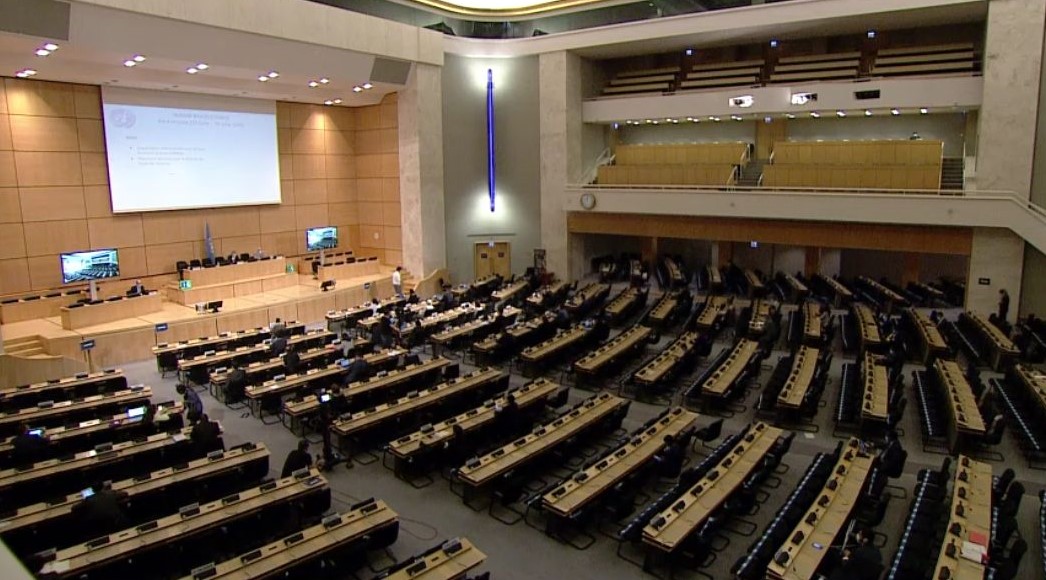
Aug 17, 2020 | Incidencia
La CIJ y 83 organizaciones de derechos humanos le piden al Consejo de Derechos Humanos de las Naciones Unidas renovar y fortalecer el mandato de la Misión Internacional Independiente de Investigación de los Hechos sobre Venezuela en el próximo periodo de sesiones. También, le piden asegurar recursos adecuados para que la Misión continué su importante trabajo.
La falta de independencia judicial en el país, recientemente analizada por la Alta Comisionada de Derechos Humanos y documentada por la CIJ durante varios años, representa un obstáculo para que las víctimas de graves violaciones de derechos humanos accedan a recursos y reparaciones efectivas. Además, ha habido casi total impunidad para los responsables de dichas violaciones. Así, la falta de una efectiva rendición de cuentas hace que el trabajo de la Misión Internacional sea indispensable.
El año pasado, en su periodo de sesiones No. 42, el Consejo de Derechos Humanos de las Naciones Unidas estableció la Misión Internacional Independiente de Investigación de los Hechos para Venezuela, con el mandato de investigar ejecuciones extrajudiciales, desapariciones forzadas, detenciones arbitrarias y torturas u otras formas de trato cruel inhumano o degradante desde 2014.
El Consejo expresó “gran preocupación por la alarmante situación de los derechos humanos en la República Bolivariana de Venezuela, en la que se repiten sistemáticamente violaciones que afectan de forma directa e indirecta a todos los derechos humanos (…) en el contexto de la actual crisis política, económica, social y humanitaria.”
El Primer informe de la Misión Internacional se presentará en la próxima sesión del Consejo, programada para el 14 de septiembre al 6 de octubre de 2020.
El comunicado conjunto suscrito por 85 organizaciones dice que el informe “marcará un importante primer paso en la senda de la rendición de cuentas en Venezuela mediante la documentación de la participación de aquellas personas de las que se sospecha que son penalmente responsables. Es fundamental que el Consejo de Derechos Humanos responda de manera significativa a las conclusiones y recomendaciones del informe”.
Por otro lado, la CIJ observa que la pandemia de la COVID-19 ha generado mayor tensión sobre la situación de derechos humanos en Venezuela. Así, la Oficina de Naciones Unidas para Coordinación de Asuntos Humanitarios (OCHA por sus siglas en inglés) informó en Julio de 2020 que “[u]na evaluación de las condiciones de agua, saneamiento e higiene en 17 hospitales realizada por la OPS/OMS en 2019 reporta que el 88,3% de los hospitales evaluados tienen un riesgo alto que las condiciones higiénico-sanitarias contribuyan al agravamiento del estado de salud de sus usuarios; el resto tienen un riesgo medio.”
El comunicado conjunto se encuentra disponible en español aquí.
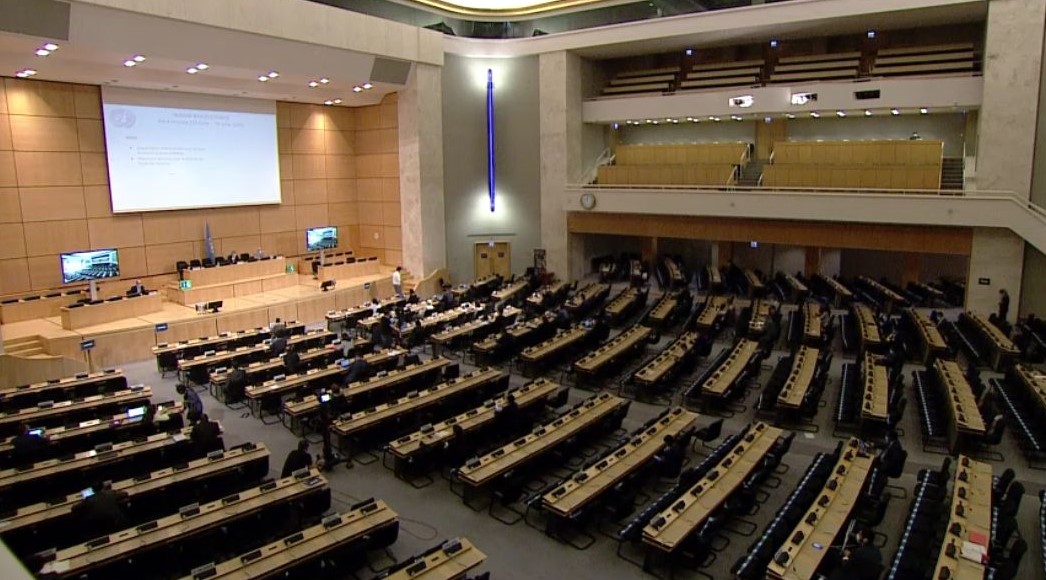
Aug 17, 2020 | Advocacy, News
Today, the ICJ joined 83 other human rights organizations to call the United Nations Human Rights Council to renew and strengthen the mandate of the Independent International Fact-Finding Mission (FFM) on Venezuela in its upcoming session in September, and to ensure it has adequate resources to continue its critical work.
The ICJ considers that the lack of judicial independence in the country, recently addressed by the High Commissioner and documented by ICJ during several years, presents a major obstacle to victims seeking to access effective remedies and reparation for gross human rights violations in the country. There has also been near complete impunity for those responsible for such violations. The lack of effective accountability makes the work of the FFM indispensable
Last year at its 42nd session, UN Human Rights Council established the Independent International Fact-Finding Mission with a mandate to investigate extrajudicial executions, enforced disappearances, arbitrary detentions and torture and other cruel, inhuman or degrading treatment since 2014.
The Council expressed “grave concern at the alarming situation of human rights in the Bolivarian Republic of Venezuela, which includes patterns of violations directly and indirectly affecting all human rights (…) in the context of the ongoing political, economic, social and humanitarian crisis.”
The FFM’s first report is expected to be presented at the Council’s next session scheduled for 14 September to 6 October.
The NGO joint statement stressed that the report “will mark an important first step on the path to accountability in Venezuela through the documentation of the participation of those suspected of criminal responsibility. It is critical that the Human Rights Council respond meaningfully to the findings and recommendations in the report”.
The ICJ notes that the COVID-19 pandemic has engendered further stresses on the human rights situation. The United Nations Office for the Coordination of Humanitarian Affairs (OCHA) reported in July 2020 that an “assessment of water, hygiene and sanitation (WASH) conditions in 17 hospitals conducted by PAHO/WHO in 2019 found that 88.3 per cent of the assessed hospitals present a high risk that hygiene and sanitary conditions pose a health risk to patients and staff; the rest face a medium risk.”
The joint statement is available here.
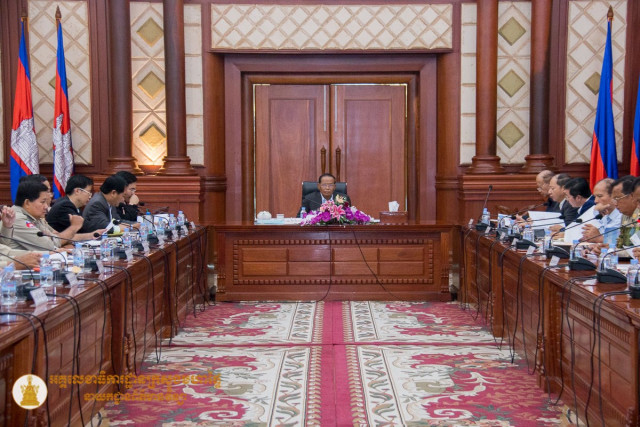
Aug 13, 2020 | Advocacy, News
Today, the ICJ and 64 civil society organizations jointly called on the Royal Government of Cambodia (“RGC”) to discard the draft Law on Public Order (“draft law”) which, if adopted, would breach Cambodia’s international legal obligations.
The draft law aims to regulate public spaces and public behavior within those spaces, covering aesthetics, sanitation, cleanliness, noise, and social values, all under the broad aim of maintaining “public order”. It sets out a number of specific activities that are prohibited, lists a range of penalties that may be imposed for violations, and grants unfettered enforcement powers to authorities across all levels of government, with the proclaimed objective of creating “a more civilized society”.
The organizations expressed concern that the draft law contains multiple overbroad and arbitrary provisions which violate numerous human rights protections enshrined in the Constitution of the Kingdom of Cambodia and human rights treaties to which Cambodia is party, including the International Covenant on Civil and Political Rights and the International Covenant on Economic, Social and Cultural Rights.
Amidst an ongoing crackdown on fundamental freedoms in Cambodia, a number of existing laws already grant overbroad and unfettered powers to the RGC and are regularly deployed abusively to undermine human rights. Adoption of this draft Law on Public Order would serve to facilitate a further deterioration of the human rights situation in Cambodia.
The joint statement is available in English here.
The joint statement is available in Khmer here.
Contact
Kingsley Abbott, Senior Legal Adviser, ICJ Global Accountability Initiative e: kingsley.abbott(a)icj.org
See also
ICJ, ‘ICJ and 31 organizations jointly urge Governments to call for respect of human rights in Cambodia’, 22 July 2020
ICJ, ‘Cambodia: State of Emergency bill violates the rule of law’, 8 April 2020
ICJ, ‘Misuse of law will do long-term damage to Cambodia’, 26 July 2018
ICJ report, ‘Achieving Justice for Gross Human Rights Violations in Cambodia: Baseline Study’, October 2017









